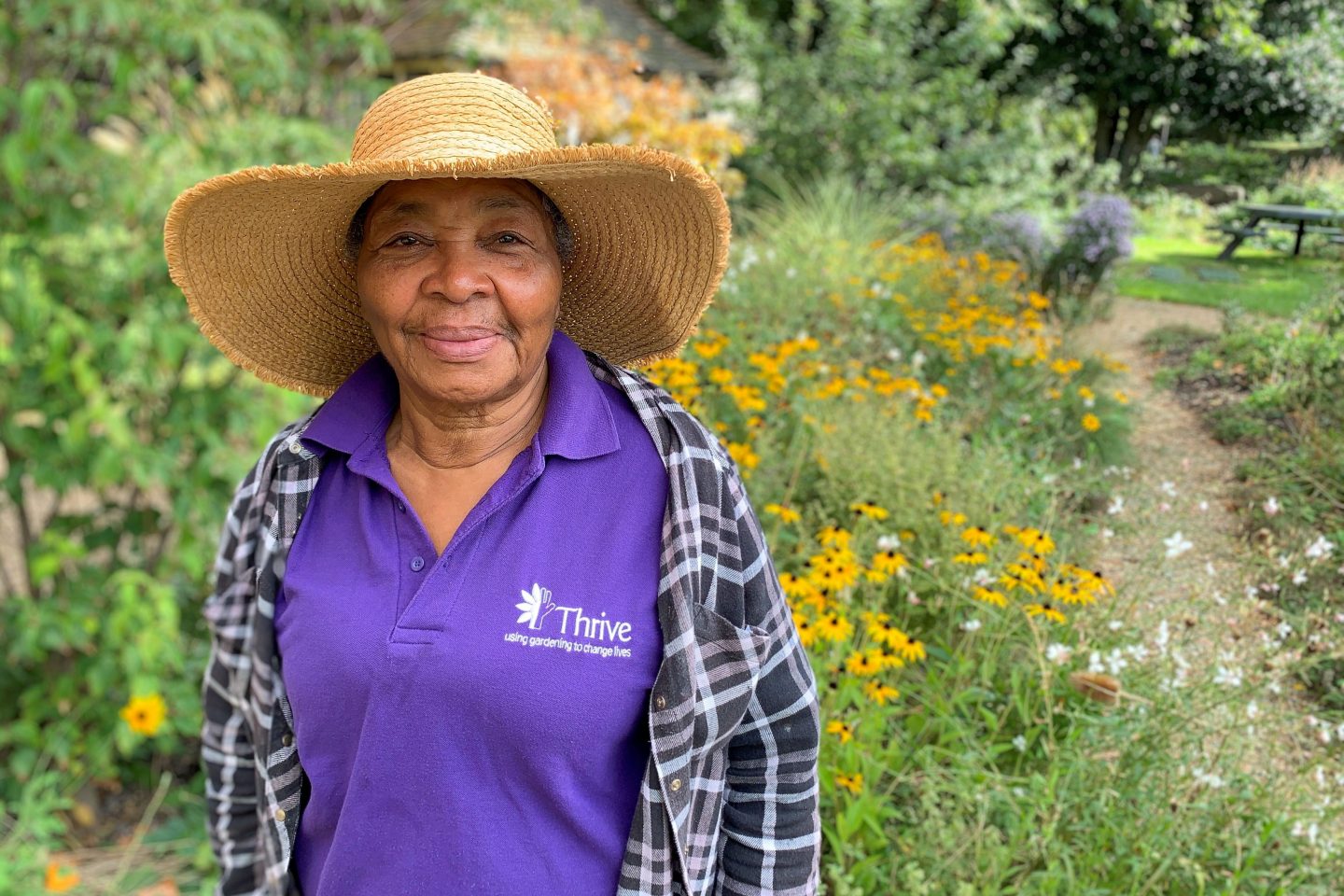

“When I’m in the garden, I leave my dementia behind.”
Home gardener living with dementia
As we live longer, the number of people with dementia in the UK is also growing. Current estimates put it at around 980,000 people, expected to rise to over 1.4 million by 2040.
There are many different types of dementia. While most people living with dementia are over 65, younger people are also diagnosed. Symptoms will be different from person to person. Memory loss may be commonly associated, but changes in mood, sensory impairment and ability to communicate are often experienced too.
Dementia is a progressive disease. The development of symptoms and how they affects daily life varies with every person. Estimates suggest two-thirds of people living with dementia are living in their own homes. This makes the role of gardens and nature at home just as important as dementia-inclusive spaces in care homes.
How gardening can support health and wellbeing
There is growing evidence that access to the outdoors and nature can have an important role supporting you if you are living with dementia.
I love it here, it’s so open and makes me feel at peace and relaxed.
Gardener, dementia-friendly allotment Bristol
Time in nature has been shown to improve emotional state, physical health, verbal expression and memory. It can also help sleep and waking patterns, appetite and reduce stress and anxiety.
A 2024 study by the University of Edinburgh, published in the Journal of Environmental Psychology, showed cognitive improvement between the age of 11 and pension age for those individuals who frequently or sometimes gardened.
A trial published in Journal of Integrative and Complementary Medicine found that horticultural therapy had an affect on maintaining static balance and improving gait speed of elderly individuals with cognitive impairment.
Gardening is sometimes advised by GPs and others as part of social prescribing. Social prescribing allows health professionals to refer people to non-clinical services in the community that can support their health and wellbeing.
I’ve got a fairly large back garden. I thought, if I can learn to do it (garden), then it will keep me occupied, it will keep my mind active and I will get that exercise.
Cynthia, Thrive client gardener living with dementia
Gardening stimulates all the senses. Some of these may have been affected by dementia, ageing or by having a number of conditions at once. Importantly, it gives the opportunity to look ahead. Nurturing plants means caring for something that will grow and flower in the future.
When gardening, there is the opportunity for connection. This could be by working together with others, or by sharing enjoyment and the things you grow.
My wife has dementia and sharing gardening is a joint activity we enjoy.
Survey respondent, gardening and dementia
We know there are many good reasons why gardening may present a challenge. In a survey on gardening and dementia in 2022, created with Dementia Adventure, 70% of people told us they garden less or have stopped completely since their diagnosis. Reasons ranged from lack of motivation and concentration to physical barriers or not being sure what to do.
But, there were also many who are now gardening more and described the benefits for them. These included:
The beauty of gardening and time in nature is its wonderful variety. From physical tasks to simply appreciating your surroundings, you can find something to suit you.
Gardening gives me a lot of joy and connection with wildlife, it enhances compassion for other creatures. It gives me something beautiful to talk about and brings me peace.
Survey respondent, gardening and dementia
If you or someone you know could benefit from in-person support, explore our range of programmes at our Thrive centres in London, Birmingham and Reading. These include our free Life Changers programme for those with ongoing health conditions.
Find out more
Welcoming outside places can encourage you to spend more time there. Find advice and ideas to help you create inspiring, enabling gardens and outside areas that can appeal to the senses.

We have seen at our Thrive centres how gardening can benefit those living with early onset dementia.
For Cynthia, time gardening at Thrive Battersea helped her to meet and share with other people, get a little exercise, feel invigorated and to learn.
Watch her video to find out more.
